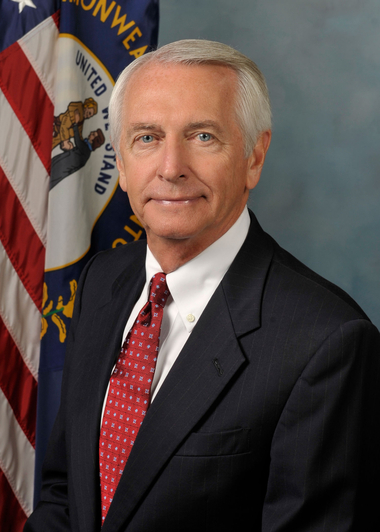Kentucky Governor vetoes 'religious rights' bill that threatened gay rights

ROGER ALFORD, Associated Press
FRANKFORT, Ky. (AP) — Gov. Steve Beshear vetoed a bill Friday that was intended to provide stronger protections of religious rights in Kentucky, setting the stage for a potential override before the legislative session draws to a close early next week.
Beshear said in a statement that he values religious freedom and appreciates the good intentions of lawmakers who overwhelmingly passed the legislation.
"However, I have significant concerns that this bill will cause serious unintentional consequences that could threaten public safety, health care, and individuals' civil rights," he said. "As written, the bill will undoubtedly lead to costly litigation."
Beshear has been under pressure from the American Civil Liberties Union of Kentucky and other groups to veto the measure that they contend could allow people to discriminate against gays, lesbians and others in the name of religion. Meanwhile, church groups have been urging Beshear to sign the bill, saying Kentucky should be allowed to join 16 other states that provide similar protections for people of faith.
The sponsor of the bill, Democratic Rep. Bob Damron of Nicholasville, warned Friday that he would push for a legislative override before the Legislature adjourns on Tuesday. Senate President Robert Stivers, R-Manchester, said the Senate is prepared to override the veto, though the House will have to take action first.
Damron sponsored the bill after the Kentucky Supreme Court issued a ruling last year upholding a state law requiring the Amish to display bright orange safety triangles on their drab buggies so motorists could better see them. Several Amish men in rural western Kentucky felt so strongly that displaying the triangles violated their religious belief against calling attention to themselves that they went to jail rather than comply with the law.
The legislation protects "sincerely held religious beliefs" from infringement unless there is "a compelling governmental interest."
The Fairness Coalition, a gay rights group, said the bill "could make discrimination legal" in Kentucky.
Wayne State University law professor Christopher Lund reviewed the effects of religious freedom laws, finding they've largely been unused and that people who did claim religious infringement in those states lost more often than they won.
In New Mexico, one of the states with a religious freedom law, a Christian wedding photographer lost two court rulings after she refused to take pictures of the commitment ceremony of a lesbian couple.
Damron acknowledged that passing the bill wouldn't to bring landmark change in Kentucky.
"But it does reinforce that somebody's basic right of religious expression is paramount and the government has to have a compelling interest to override that," he said.
Martin Cothran, a spokesman for The Family Foundation, said the veto was sad news in the Bible-belt state.
"This puts churches around the commonwealth of Kentucky on notice that the First Amendment religious freedoms they thought their government respected may now be negotiable," Cothran said. "We just hope elected lawmakers in the Legislature will act quickly to correct the governor's action. We think they will."
ACLU of Kentucky Executive Director Michael Aldridge said Beshear headed off discrimination by vetoing the bill.
"With the myriad of concerns and questions that have been raised over the past several weeks, we strongly urge the Kentucky legislature to allow Gov. Beshear's veto to stand," Aldridge said. "This would allow lawmakers another year to reach a compromise that would ensure the proper balance between individuals' religious freedom and others' civil rights protections."
Louisville Mayor Greg Fischer, one of the more vocal opponents of Damron's bill, said in a statement that Beshear made the right decision.
"I applaud the governor for making this bold move," Fischer said. "His action demonstrates true leadership. He listened to all sides and made the right decision in the best interest of the entire commonwealth."
___
The legislation is House Bill 279.
Copyright 2013 The Associated Press.





